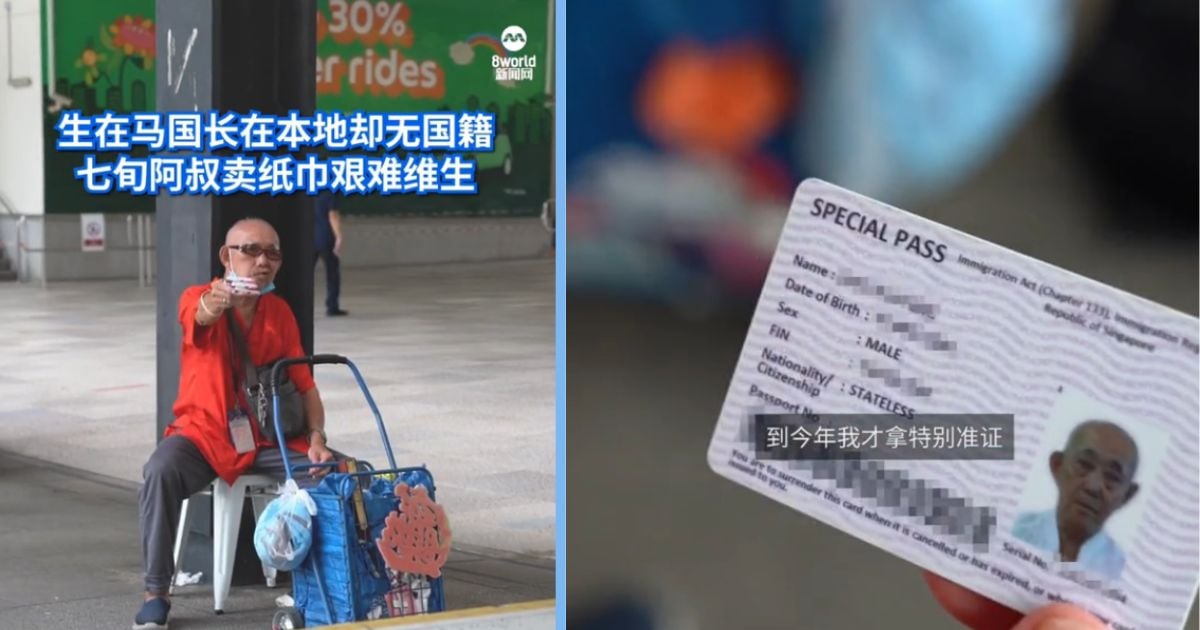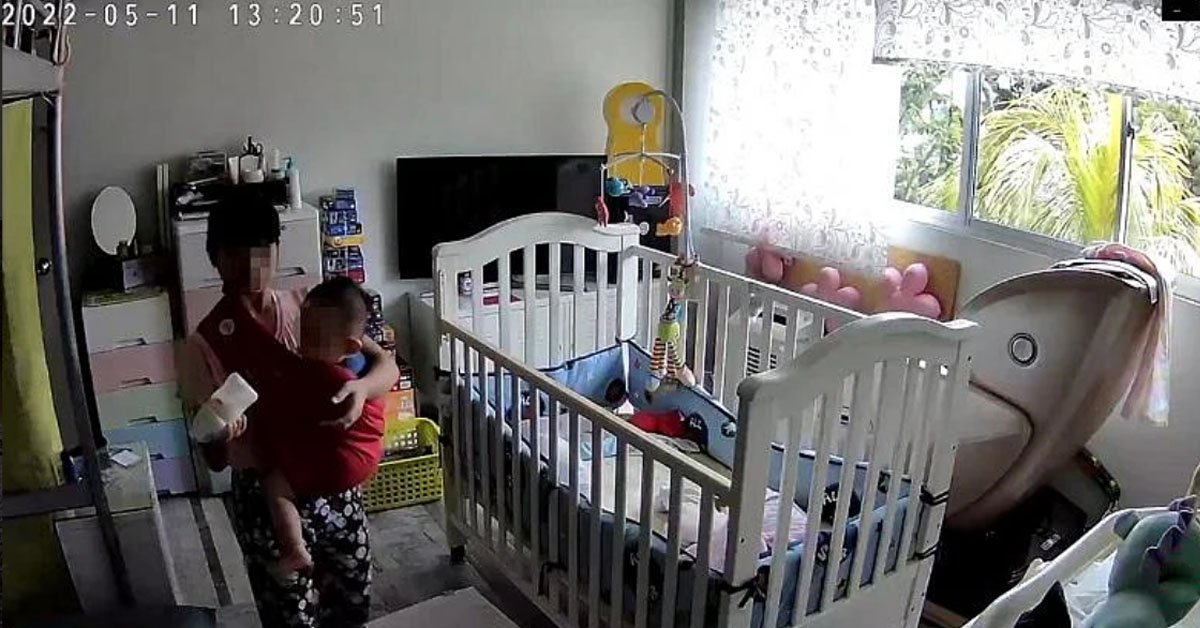The Heartbreaking Tale of a Stateless 70-Year-Old in Singapore Living on One Meal a Day
From the crack of dawn every day for the past decade, a 70-year-old uncle has stationed himself at Paya Lebar MRT, selling tissues to passers-by.
Due to financial concerns, the man eats only one meal a day and refrains from seeking medical attention, enduring pain and illness despite his old age.
His name is Mr Goh, and he was born in Taiping, Perak, Malaysia, in 1947.
Mr Goh’s Life Story
At the age of five, he moved to Singapore with his parents and attended school until the age of nine, when his parents asked him to drop out of school to pursue a career in Hokkien opera.
When interviewed by reporters from 8world, Mr Goh confessed that he attempted to apply for local citizenship twice throughout his stay in Singapore, once at the age of 13 and another at 20.
Ultimately, he was rejected both times due to his inability to speak English and Malay.
He further states that while he used to travel between Singapore and Malaysia effortlessly, his identification documents were confiscated by Malaysian customs officers at the age of 25 for reasons undisclosed.
This caused him to lose his Malaysian citizenship and become stateless, leaving him stranded on our shores.
One Meal a Day to Make Ends Meet
Without a passport and not knowing how to apply for an identity document, he cannot leave the country.
Having settled in Singapore for more than 70 years, Mr Goh has been involved in Hokkien opera, worked as a garbage collector, and, about ten years ago, started selling tissues to make ends meet.
Mr Goh lost contact with his first wife after a divorce in his youth. His girlfriend of 28 years also passed away from cancer a few years ago.
After his parents’ deaths, he severed ties with his two sisters due to property disputes.
When asked if he wants to return to his hometown, Mr Goh expressed that he has no relatives there and does not wish to go back.
On how much he earns every day selling tissues, he says that the income varies, but it never exceeds S$100 a day.
With no children, no property, and currently living alone in the living room of a rented flat in Aljunied, he pays a monthly rent of S$350. His belongings, including tissues in a small cart, constitute his entire possessions.
With the help of the authorities at the end of last year, Mr Goh obtained a Special Pass, which, according to the ICA, legalizes a foreigner’s stay in Singapore, designed to offer assistance to stateless persons such as Mr Goh in Singapore.
Due to this pass, he is also receiving $410 in assistance each month, which alleviates some financial pressure.
However, the rising cost of living has made life difficult, forcing him to budget carefully.
He told reporters that he eats only one meal a day; sometimes it is a proper meal, sometimes it is just porridge.
He believes eating is about saving money. If someone buys something for him to eat, that would be the only meal for him for the day, and he carries over that day’s budget for tomorrow.
To make things worse for him, Mr Goh, who perceives himself to be in good health, began feeling a decline in his condition after a car accident in March this year.
Recently, his right eye has also become swollen. Clinic doctors recommended a hospital check-up, but Mr Goh stated that he will not seek medical attention.
Unable to bear the medical expenses, he quietly endures the pain day by day.
Mr Goh has no expectations for the future and does not plan to apply for citizenship again.
In a heart-wrenching TikTok uploaded by 8world to shed light on Mr Goh’s situation, he simply confesses that he’s just waiting for death.
What Constitutes as “Stateless”?
As of 30 November 2020, there were a total of 1,109 stateless individuals residing in Singapore, according to the Minister for Home Affairs (MHA) and Minister for Law, K. Shanmugam.
Among them, 76% are permanent residents of Singapore, enjoying the various benefits such as healthcare, housing, and education.
When an individual applies for permanent residency (PR) or Singapore citizenship (SC), the Immigration and Checkpoints Authority (ICA) thoroughly evaluates each application.
These factors include residency duration, family circumstances, economic contributions, education, age, and family relationships with Singaporeans.
The circumstances leading to statelessness are also taken into account, including those who voluntarily renounce foreign citizenship or involuntarily lose citizenship due to criminal activities.
Some individuals born in Singapore may not be eligible for citizenship if their parents were not Singaporean citizens, and their parents did not apply for citizenship for them at birth.
Thankfully, there are people out there who are actively stepping in to help households and individuals going through hardship.
For example, a 23-year-old nurse made use of her GST payout to purchase food and necessities for the elderly.
Non-profit organization Ray of Hope also set up several fundraisers to offer financial stateless families and individuals.
While Mr Goh’s story may not have such a happy start, perhaps we can work together to give him a happy ending.



